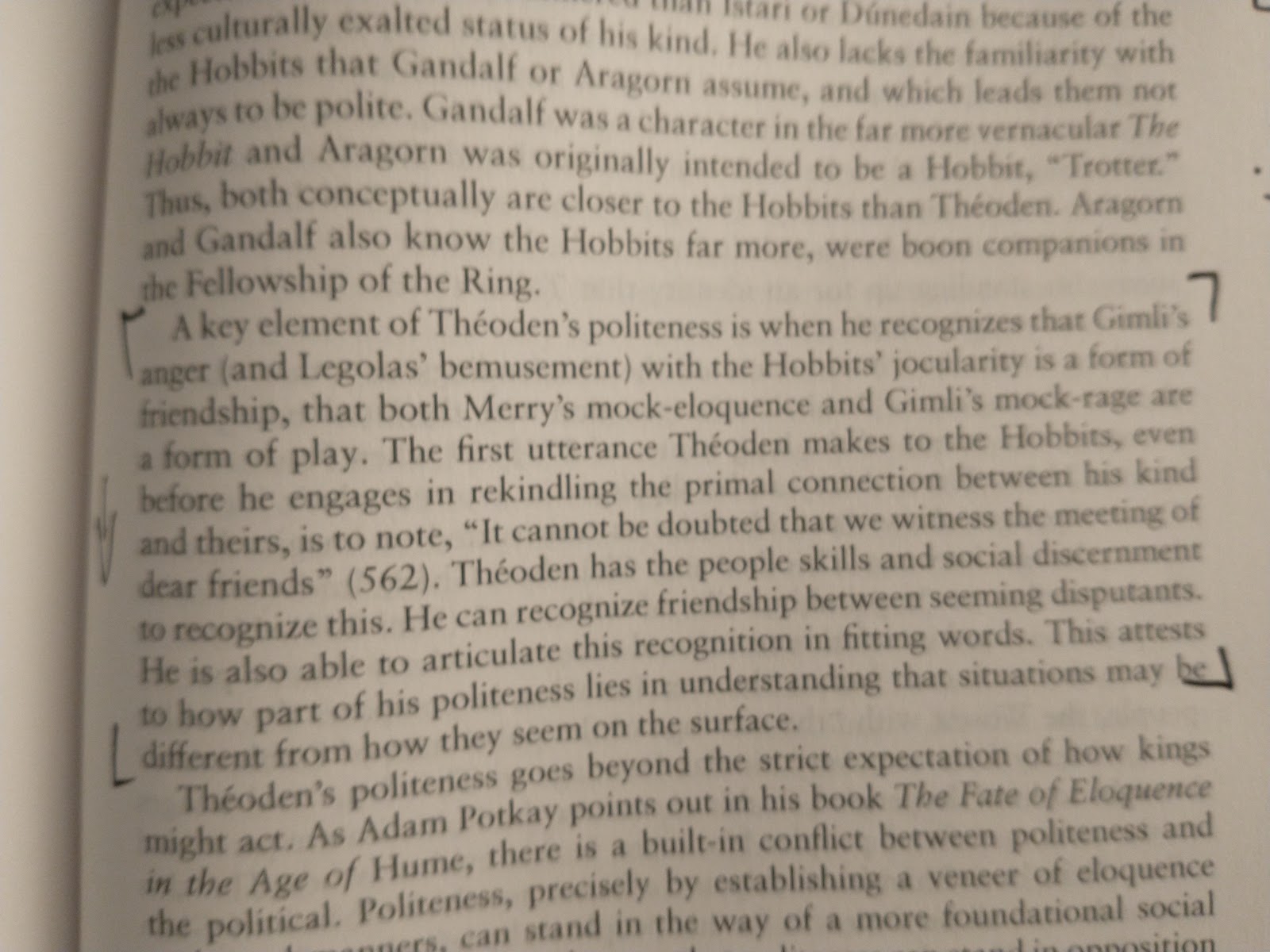In his new book The Literary Role of History in the Fiction of J. R. R. Tolkien, Nick Birns has written a very interesting chapter called "Hobbits, the Rohirrim, and Modern Histories of Politeness."
In the paragraph shown below, he comments on what we can see in Théoden's first encounter with Merry and Pippin at the gates of Isengard:
Earlier on Gandalf, Aragorn, Legolas, and Gimli had been rather rudely welcomed to Edoras by Théoden and Wormtongue. Gandalf replies as tartly as we might expect him to do: "The courtesy of your hall is somewhat lessened of late, Théoden son of Thengel," (TT 4.vi.513). And even amongst themselves the Rohirrim have seen the politeness appropriate to the King's Hall wear thin. Éomer has threatened Wormtongue with his sword in the hall and disobeyed the King's orders, breaches for which he has been imprisoned.
With this in the background and the King's healing by Gandalf, we can see the politeness of the King which so impressed Merry and Pippin as proof of that healing, and as an assurance that Théoden is restored enough to be able to face Saruman without being taken in by his polite lies. The Riders may doubt him when the moment comes, but Gandalf does not. Nor do most readers, I would imagine.
